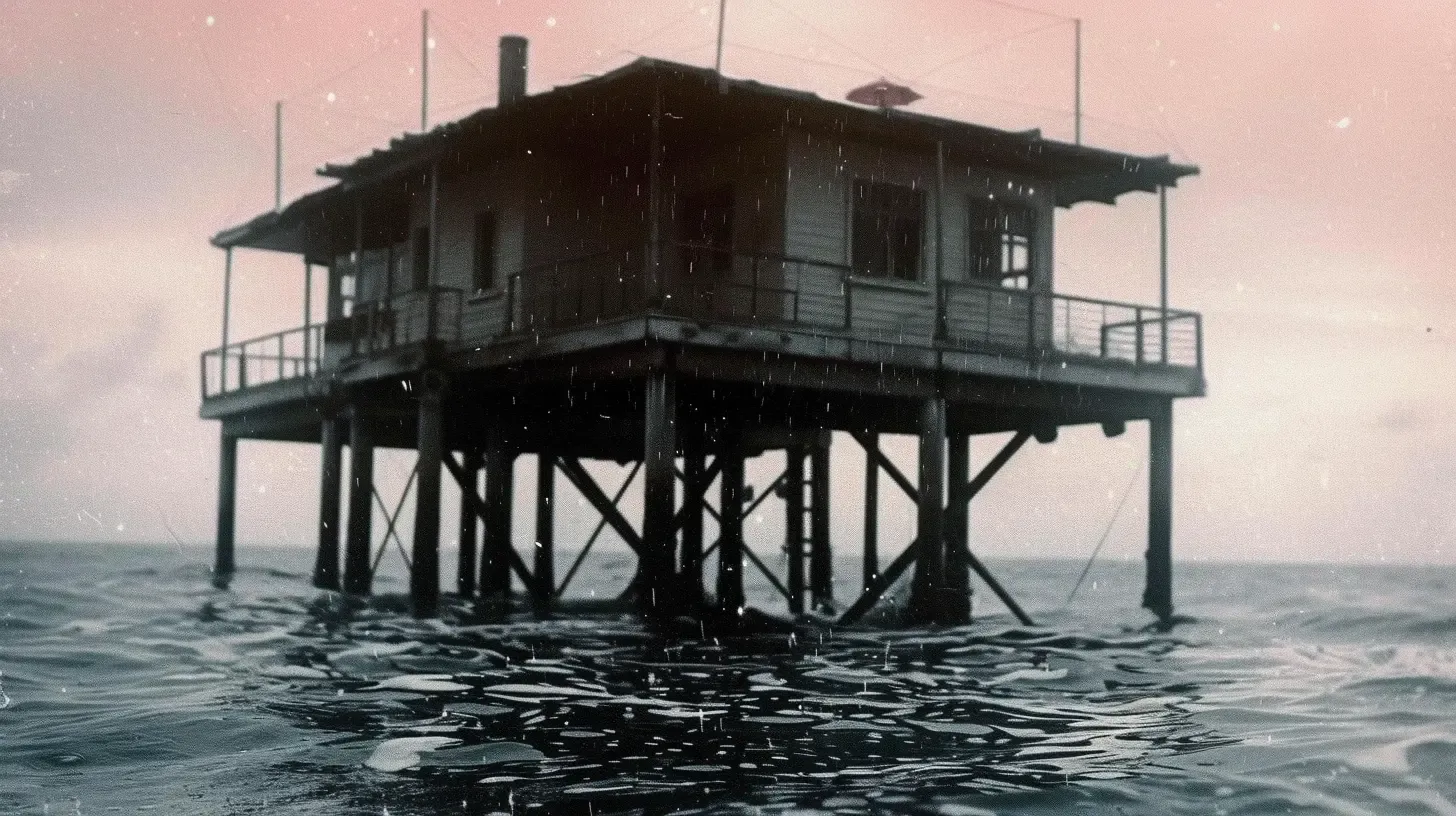10 February 2024
Rose Island: The Utopian Dream That Defied Nations.

Press the play button in the top right corner to listen to the article
In the North Atlantic Ocean, a short-lived micronation emerged on a man-made platform, embodying the spirit of independence and the quest for sovereignty. Rose Island, or "Respubliko de la Insulo de la Rozoj" in Esperanto, was an extraordinary testament to human ingenuity and the desire for freedom. This article delves into the history, creation, and eventual downfall of Rose Island, highlighting its significance in the annals of micronationalism.
The story of Rose Island began in 1967, when Italian engineer Giorgio Rosa decided to construct a platform in international waters, 11.6 kilometers off the coast of Rimini, Italy. Rosa's ambition was not just to create a technological marvel but to establish a new nation, free from governmental control, where people could live and innovate without restriction. The platform was completed in 1968, featuring a restaurant, nightclub, bar, souvenir shop, and even a post office, claiming sovereignty under the Esperanto name for "The Republic of Rose Island."
The declaration of independence by Rose Island was met with intrigue and skepticism around the world. Here was a man-made structure, claiming to be a sovereign nation, on the basis of international law which states that man-made structures can be considered for sovereign status if they are permanent. Rose Island issued its own stamps, created its own currency, and even had its official language, Esperanto, symbolizing its commitment to global peace and unity.
However, the dream of Rose Island was short-lived. The Italian government, viewing the micronation as a ploy to attract tourism and, more critically, as a potential tax evasion scheme, quickly took action. In February 1969, Italian police forces occupied Rose Island, and by June of the same year, the Italian government decided to eliminate the "threat" once and for all. In a dramatic turn of events, the Italian navy was ordered to demolish the platform using explosives, effectively putting an end to the Rose Island project.
The destruction of Rose Island sparked a debate on sovereignty, international law, and human rights. Giorgio Rosa's utopian vision challenged the conventional notions of nationhood and territorial claims, posing questions that remain relevant today. What makes a nation a nation? Can a man-made structure in international waters claim independence? Rose Island stood as a symbol of defiance, a beacon of hope for those who dream of creating their own reality.
In retrospect, Rose Island was more than just a platform in the sea; it was a bold experiment in independence and self-governance. Although it existed for a brief moment in time, its legacy continues to inspire and provoke thought about freedom, sovereignty, and the possibilities of human creativity.
The content, including articles, medical topics, and photographs, has been created exclusively using artificial intelligence (AI). While efforts are made for accuracy and relevance, we do not guarantee the completeness, timeliness, or validity of the content and assume no responsibility for any inaccuracies or omissions. Use of the content is at the user's own risk and is intended exclusively for informational purposes.
#botnews















































































